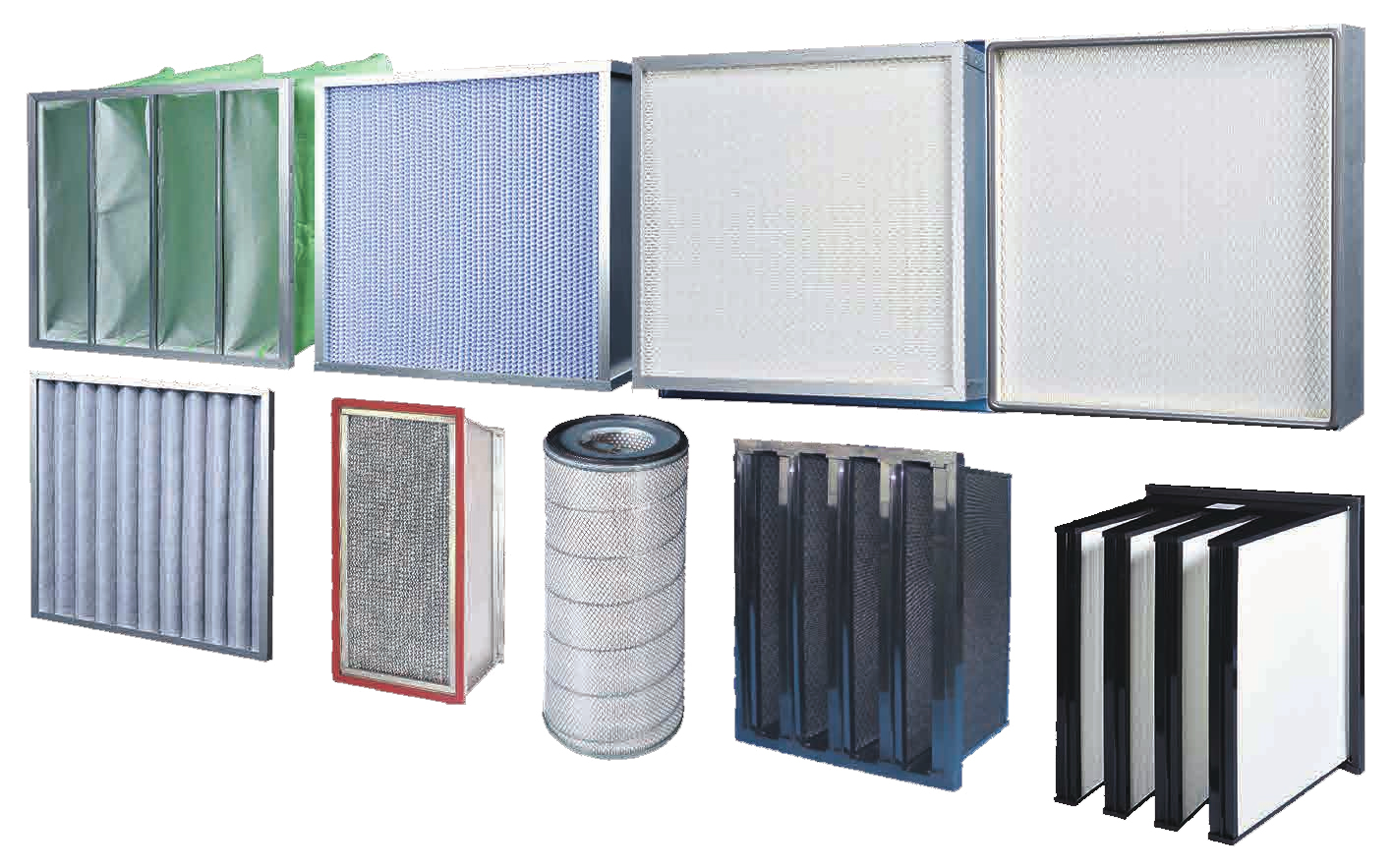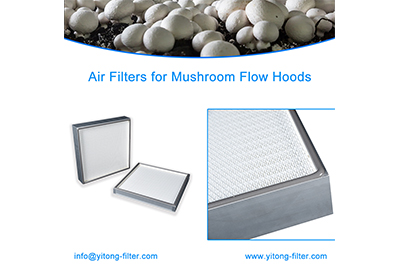 April 17, 2025
April 17, 2025
When it comes to indoor air quality, HVAC HEPA filters play a critical role. Whether you're managing a commercial building, hospital, school, or even your home, ensuring clean, breathable air is more important than ever. But what exactly is an HVAC HEPA filter, and how does it improve air quality?

In this detailed guide, we'll explore everything you need to know about HVAC HEPA filters, including what they are, how they work, their benefits, where they are used, and how to choose the right one.
HEPA stands for High-Efficiency Particulate Air. A HEPA filter is designed to capture at least 99.97% of particles as small as 0.3 microns. These include dust, pollen, mold spores, bacteria, and even some viruses.
When used in an HVAC system (Heating, Ventilation, and Air Conditioning), HEPA filters help clean the air before it circulates throughout a building or room, significantly improving indoor air quality.
HEPA filters are made of dense mats of randomly arranged fibers, typically composed of fiberglass. Air is pushed or pulled through the filter, and three main mechanisms capture airborne particles:
1. Interception: Particles follow the air stream and stick to the fibers.
2. Impaction: Larger particles collide with the fibers and are trapped.
3. Diffusion: Very small particles are slowed down by air molecules and eventually hit the fibers.
These combined mechanisms allow HEPA filters to capture a wide range of particle sizes, making them incredibly efficient.
Here are some of the top benefits of installing HEPA filters in HVAC systems:
1. Improved Indoor Air Quality
By capturing airborne pollutants, HEPA filters create a cleaner and healthier environment, especially for people with allergies, asthma, or other respiratory conditions.
2. Better Health and Comfort
Reducing contaminants like dust and mold spores can lead to fewer allergic reactions, less sneezing, and easier breathing.
3. Support for Cleanroom and Healthcare Standards
HEPA filters are often required in hospitals, cleanrooms, laboratories, and pharmaceutical facilities where ultra-clean air is critical.
4. Enhanced Equipment Protection
Cleaner air can protect HVAC components and sensitive equipment from dust buildup, which reduces maintenance and extends lifespan.
HEPA filters are used in a variety of environments:
- Hospitals and Healthcare Facilities
- Pharmaceutical Manufacturing
- Food and Beverage Processing
- Laboratories
- Cleanrooms
- Schools and Universities
- Commercial Buildings
- High-end Residential Homes
In sensitive environments like operating rooms or cleanrooms, HEPA filters are often used in terminal housings or fan filter units (FFUs) to ensure localized air purification.
While HEPA filters offer great performance, there are some considerations:
1. High Airflow Resistance
Because HEPA filters are so dense, they can restrict airflow. This means they require more powerful fans or blowers, and not all HVAC systems are built to handle them.
2. Not Effective for Gases or Odors
HEPA filters are great for particles, but they don’t capture gases or chemical fumes. For that, you'll need activated carbon filters or other chemical filtration.
3. Maintenance and Replacement
HEPA filters need regular replacement, typically every 6 to 12 months, depending on the application and environment.
When selecting an HVAC HEPA filter, consider the following factors:
1. Efficiency Rating
Look for filters that meet the True HEPA standard (99.97% @ 0.3 microns). Be cautious of filters labeled “HEPA-type” or “HEPA-like” — they may not meet the true standard.
2. Filter Size and Compatibility
Ensure the filter fits your HVAC system properly. A mismatch can lead to bypass leakage, reducing efficiency.
3. Airflow Capacity
Make sure your HVAC unit can handle the added resistance of a HEPA filter. You may need to upgrade fans or use a pre-filter to extend the life of the HEPA filter.
4. Certifications
For critical environments, choose filters that meet ISO 29463, EN 1822, or ASHRAE standards for performance and reliability.
- Inspect regularly (every 1-3 months)
- Replace when pressure drop increases significantly
- Use pre-filters to capture larger particles and protect the HEPA filter
- Monitor air quality to ensure optimal performance
Proper maintenance ensures efficiency and prolongs the life of your HVAC system.
While both HEPA and MERV filters improve air quality, there are some key differences:
| Feature | HEPA Filter | MERV Filter (13-16) |
|---|---|---|
| Efficiency | 99.97% @ 0.3 microns | 50%-95% (depending on MERV rating) |
| Airflow Resistance | High | Medium |
| Cost | Higher | Lower |
| Application | Hospitals, labs, cleanrooms | Homes, offices, commercial spaces |
HVAC HEPA filters are a powerful tool in the fight against indoor air pollution. By trapping tiny airborne particles with unmatched efficiency, they help create safer, cleaner environments in healthcare, industry, and even residential settings.
However, not every HVAC system is designed for HEPA filters, so it's essential to assess your equipment and needs before upgrading. If clean air is a top priority — whether for health, compliance, or comfort — then investing in HVAC HEPA filtration is a smart, long-term decision.
Q1: Can I install a HEPA filter in any HVAC system?
Not always. Some systems may require upgrades to handle the increased airflow resistance of a HEPA filter.
Q2: How often should I replace my HVAC HEPA filter?
Typically every 6 to 12 months, depending on usage and environment.
Q3: Are HEPA filters good for allergies?
Yes. They are excellent at removing pollen, dust, and other allergens from the air.
Q4: Do HEPA filters remove viruses?
HEPA filters can trap virus-sized particles, but they are not a guaranteed method for virus control on their own.
 Oct. 10, 2024
The Ultimate Guide to Finding the Right HEPA Filter Supplier
Oct. 10, 2024
The Ultimate Guide to Finding the Right HEPA Filter Supplier
 Jul. 19, 2024
The Importance of Air Filters for Mushroom Flow Hoods
Jul. 19, 2024
The Importance of Air Filters for Mushroom Flow Hoods
 Jun. 28, 2023
Purpose and Characteristics of High-Temperature Air Filters
Jun. 28, 2023
Purpose and Characteristics of High-Temperature Air Filters